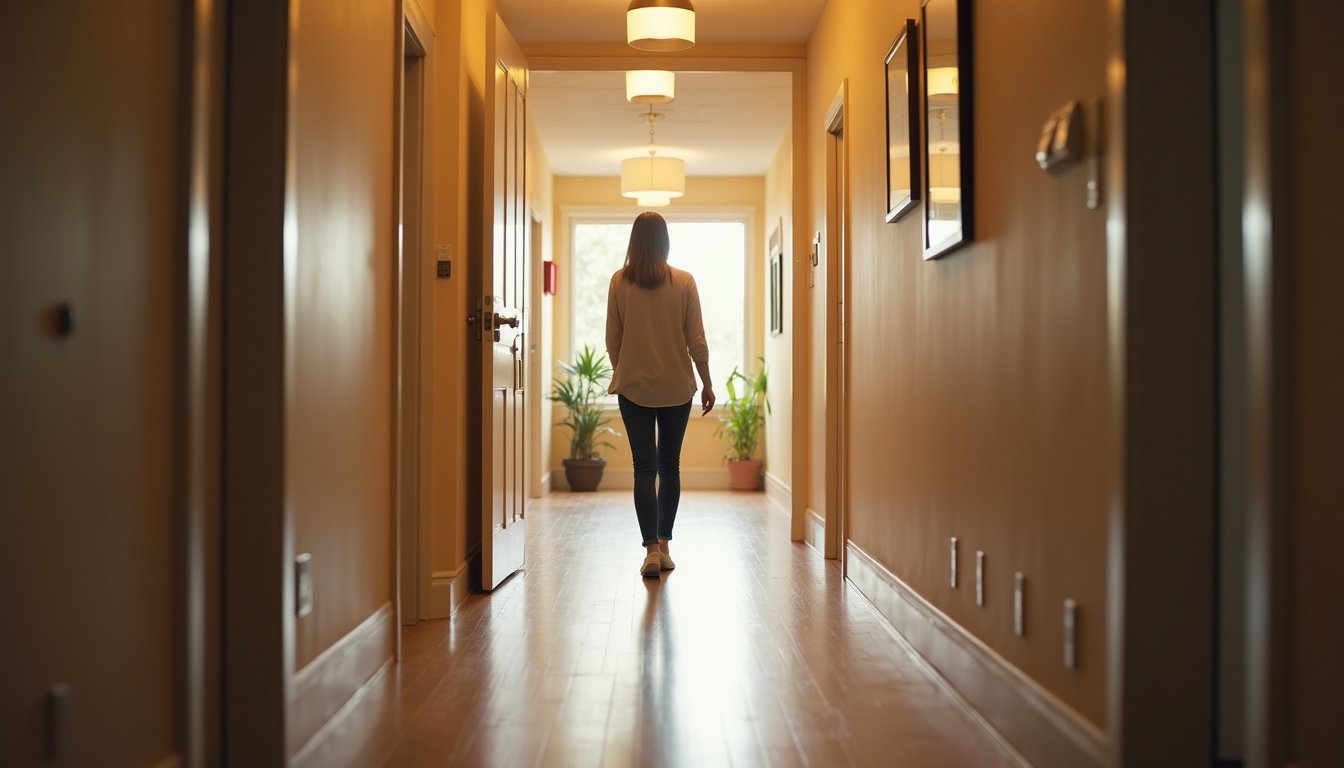Understanding Depressive Episodes
Everyone has experienced sadness at some time or another. Feeling depressed is a normal part of life in certain situations. However, there’s a notable difference between merely feeling depressed for a short time due to a loss or a string of bad luck and having an episode of depression. If you go through a depressive episode, it’s not just your mood — it’s a medical condition. Here are some facts about depression, its symptoms, effective treatments, and what to expect if you are diagnosed.
What Is Depression?
Depression is a mood disorder also known as major depressive disorder (MDD) or clinical depression. This chronic condition can periodically come and go throughout a person’s lifetime. Typically, you are diagnosed with depression, you have periods where you don’t experience any symptoms and then, after a few weeks or months, you experience another depressive episode.
How Does Depression Differ from Regular Sadness?
Many things can cause a person to feel sad. The death of a loved one, including a pet, experiencing a miscarriage, the end of a marriage or long-term dating relationship, and even losing a job are all situations where people go through a period of sadness and even grief. However, these emotions are considerably different than major depressive disorder.
Grieving is a natural process that all people go through at different periods in life. It’s normal to feel sad and overwhelmed, but even grief over the death of a beloved family member or friend leads to feelings of sadness that shift to happy, cherished memories. With clinical depression, it’s impossible to focus on any of the good in life. Instead, individuals’ moods consistently remain low, and they have trouble acknowledging that things could get better. Feelings of sadness, anger, and worthlessness are front and center and don’t dissipate while in a depressive episode.
Statistics and Knowing Who Is Affected
Major depressive disorder affects approximately 5% of all people worldwide. This equates to around 280 million people struggling with depression around the globe. It’s extremely common among women who have given birth; around 50% of all women experience postpartum depression shortly after having a child. Adults 60 and older also experience nearly 6% of all instances of clinical depression, with much of it having to do with isolation.
Although it most commonly starts with people in their 20s, adults of any age range and even children can develop the condition. It’s also more likely to impact women than men. Those who live a more isolated life are affected more often than people who maintain close contact with friends and family members.
What Are the Causes and Risk Factors of Depression?
It’s crucial to note that depression is not just feeling sad. Instead, it is a mental health disorder that causes a variety of symptoms. Although imbalances in brain chemistry may play some role in developing clinical depression, environment, genetics, and experience are other contributors. Researchers believe that a combination of these factors leads to the presence of the disorder.
Individuals who have a family history of depression are more likely to develop the condition. Significant trauma in childhood, such as abuse or witnessing domestic violence against a parent, can also lead to depression. Extremely stressful life events, like the death of a loved one or experiencing a traumatic event, also increase the risk of clinical depression.
Symptoms of Major Depressive Disorder
There are many symptoms a person can experience when going through a depressive episode. They can range in severity from person to person and usually last anywhere from a day to two weeks or more. Clinical depression symptoms include:
- In adults, a feeling of extreme sadness that doesn’t fade
- In children, more irritability than usual
- Low moods including hopelessness and emptiness
- Significant lack of energy
- Body aches and pains
- Difficulty concentrating
- Decrease or increase in appetite leading to weight loss or weight gain
- Insomnia or sleeping too much
- Extreme feelings of guilt and worthlessness
- Loss of interest in favorite things and activities
- Anxiety and restlessness
- Slower movements and decrease in cognitive function
- Notable personality changes
- Difficulty remembering even easy or routine things
- Extreme outbursts even over minor things
- Suicidal thoughts or actions
When individuals are in the midst of a depressive episode, they may have trouble performing ordinary daily tasks. It can be difficult for them to concentrate on their work or studies, and they may even find it impossible to remain in school or in their jobs. Depression symptoms can also cause problems in interpersonal relationships. It’s common for people with major depressive disorder to experience many of these issues and not understand why they’re going through them.
Diagnosing Clinical Depression
When diagnosing clinical depression, doctors take into consideration the person’s symptoms and medical history. They may also order clinical tests to evaluate the person and rule out other health concerns like substance use disorder. Doctors will also take note of any symptoms that indicate other mental health conditions.
Doctors also consider the number of symptoms individuals experience when diagnosing clinical depression. If they have five or more symptoms that last all day for at least two weeks, the doctor can make a diagnosis. Two of the main symptoms involved in diagnosing clinical depression are persistent low moods and loss of interest in things once enjoyed.
Getting Help and Treatment Options
If you are struggling with clinical depression, you should not go through it alone. After a positive diagnosis, you can seek treatment. Of course, not everyone battling depression takes the initiative to get help. It might take some pushing from loved ones before you take that important step toward seeking treatment. There are different options available depending on your symptoms. Your doctor can determine which ones might help you.
In most cases, treatment for clinical depression involves a combination of medication and therapy. Cognitive behavioral therapy (CBT) and interpersonal therapy (IPT) are often the most effective; they involve sessions with a therapist weekly or biweekly.
Antidepressants may be prescribed to address your depression symptoms. Although these drugs often carry side effects, those issues can resolve over time as your body gradually adapts to your treatment. For those who have severe depression, electroconvulsive therapy (ECT) may be prescribed and is often effective. It’s administered through electrical waves sent into the brain while you’re under general anesthesia.
Depending on your depression symptoms and the severity of your condition, you may notice improvements within a week or two after starting your treatment. However, you may not feel your symptoms fading until you have been on antidepressants for at least two months.
If your doctor prescribes this medication as part of your treatment, but you don’t experience any improvements, it’s important to speak with them as soon as possible. They can adjust your dose, prescribe a new drug, or prescribe a different treatment altogether.
Consequences of Clinical Depression
If left untreated, clinical depression can adversely affect a person’s daily life. In addition to experiencing the symptoms typically associated with the condition, individuals can develop other medical and mental health problems such as anxiety, high blood pressure, and heart disease. Individuals with mental health disorders often turn to alcohol or drugs to numb their symptoms as well. This leads to the development of a substance use problem and a co-occurring disorder, known as a dual diagnosis.
In the worst-case scenario, untreated depression can lead to suicidal thoughts or actions. If you have begun experiencing these, get help right away. Calling your doctor, the National Depression Hotline, or 988, the National Suicide and Crisis Lifeline, can make all the difference in the world and is a big, positive first step. Even speaking to a close friend or family member can help.
What Is the Prognosis of Depression?
When a person with clinical depression seeks treatment, the prognosis is usually good when certain factors are considered. Doctors must note the severity of the individual’s symptoms and whether there are any other mental health or medical conditions involved that might affect their treatment.
People who have milder symptoms usually have more success with their treatment. Those who have a strong support system of friends and family are more likely to have a good prognosis after being diagnosed with depression as well.
Fortunately, although there is not yet a cure for it, depression is one of the most treatable mental health conditions. When those with the disorder seek help and get treatment, they have a better chance of living a healthy, happy life. Around 80% to 90% of those who get treatment respond well to it.
How to Live With Depression
If you have been diagnosed with major depressive disorder, it’s crucial to follow the treatment regimen as prescribed or recommended by your doctor. This includes taking your antidepressants and undergoing therapy and any advice from your therapist that could help in your daily life.
When you have a depressive episode, there are other things you can do on your own that can relieve your symptoms. Many of these things are second nature to people not living with depression but may take a concerted effort on your part. One way to alleviate your symptoms is to consume a healthy diet. You should also avoid alcohol and drugs that are not prescribed for treating your depression and other medical conditions. Alcohol is a depressant, so drinking it can only exacerbate your symptoms.
Spend quality time with family and friends. Your support system is integral in how you manage your treatment. Get plenty of refreshing sleep; aim for seven to nine hours each night. You also need physical activity as part of your daily routine. Exercising can significantly boost your mood and keep your body fit, which is a two-fold benefit.
It’s possible to live a happy life again when you get your depression under control. A combination of your treatment and taking positive steps to improve your health, especially when you have important people in your life, can make all the difference in the world. If you need help, contact the National Depression Hotline at (866) 629-4564 anytime.






